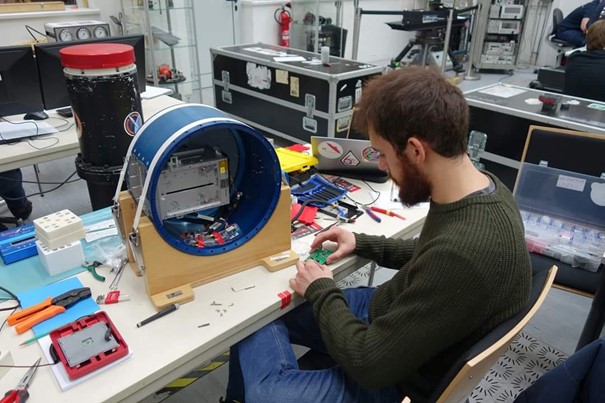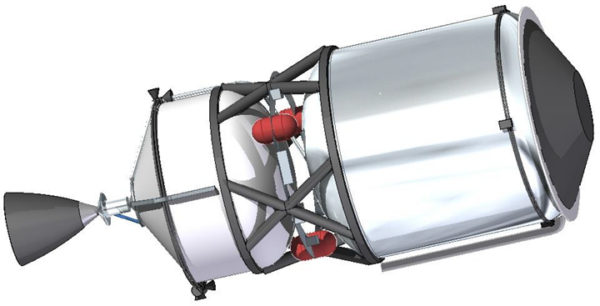The MSE programme is particularly project-driven to offer students hands-on experience in space engineering. Space systems engineers are confronted with technical tasks, but also face challenges in management and interpersonal communication. MSE students get experience by working on real projects during their studies.
MSE students can choose from a variety of curricular and extracurricular projects at the Chair of Space Technology. Here are examples of past and ongoing projects, as well as activities in which MSE students can participate throughout their studies.
BEARS
BEARS (Berlin Experimental Astronautics Research Student Team e.V.) is a student association at the Technische Universität Berlin. The club was founded with the goal of providing students from all disciplines the opportunity to apply their theoretical knowledge in practical space related projects. Students of the Department of Aeronautics and Astronautics can voluntarily participate in BEARS projects and pitch their own ideas. BEARS hosts a weekly club meeting where students can learn about ongoing projects and discover opportunities to get involved.
TUPEX
TUPEX (TU Berlin Picosatellite Experiments) is a series of space projects in which students build and test space technologies. These hands-on projects have been conducted for many years at the Chair of Space Technology. TUPEX aims to verify new technologies for picosatellites that are further used for the upcoming TU Berlin space missions. These technologies are for example satellite sensors, actuators, communication equipment, deployment mechanisms and even whole CubeSat bus systems. Traditionally, the are verified on board a sounding rocket (REXUS/BEXUS), parabolic flight or stratospheric balloon.
A TUPEX project starts as class work in one of the program’s hands-on courses. The students design, develop and operate the whole mission with support of experienced scientific staff. More information about the most recent projects can be found on the TUPEX-6 and TUPEX-7 blogs. A short video about TUPEX-6 provides impressions of the teamwork.
Space Rovers
The Chair of Space Technology has a family of autonomous rovers built by researchers and students. These rovers demonstrate the capabilities of autonomous planetary exploration, soil sample collection, and more in a lab environment. Students modify existing rovers in courses and extra-curricular activities. In MSE, the courses Planetary Exploration and Space Robotics 1 & 2 provide students with the opportunity to take part in the rover developments for credits. Traditionally, the rovers take part in experiment campaigns like IGLUNA or space rover competitions like the DLR SpaceBot Cup or the European Rover Challenge. In 2024, 35 students participated in the European Rover Challenge and secured 7th place, winning two awards for the best navigation droning and science exploration tasks. Another example is the rover LUIEE that aims to extract ice from the Moon and was tested by MSE students on Mount Pilatus, in the scope of ESA’s IGLUNA campaign.
PULSE
PULSE is a student-developed satellite mission for monitoring the cosmic radiation environment in Low Earth Orbit. The satellite has a 3-unit PocketQube format with a size of 5cm x 5cm x 15cm. The satellite’s payload is a radiation camera sponsored by the company Advacam. An interdisciplinary team of about 30 students from more than 20 nationalities designs and builds the satellite in the scope of MSE courses like Space Mission Design Project, Space Technology Project and a dedicated PULSE project lab for credits.
Space Mission Design Studies
MSE students design space missions and systems, collaborating with researchers and industry experts. Notable projects include a Lunar upper stage study for Ariane 6 with ArianeGroup, fire detection algorithms for TU Berlin’s TUBIN satellite, and human space habitat concepts in the Human Spaceflight course. Students engage in concept studies, subsystem analysis, and expert reviews.
BEEGND
BEEGND (Berlin Experimental and Education Ground Station) is a project in which students build ground station equipment for operating TU Berlin satellites and doing radio astronomy. The ground stations are built with the guidance of experts and make use of Commercial-Off-The-Shelf hardware. The ground stations have a strong focus on Software-Defined Radio technology. MSE students who want to contribute to the ground station developments can take the course Satellite Communication.
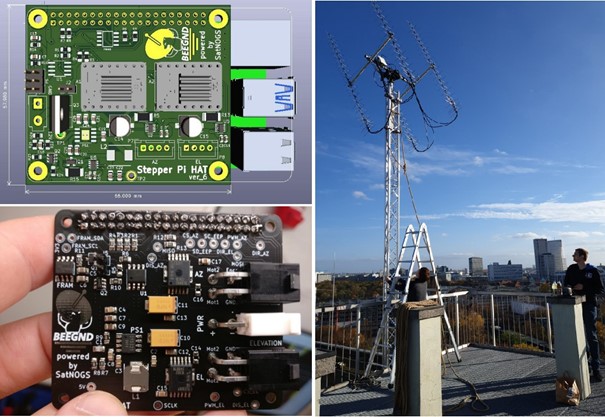
CAD-SE
CAD-SE (or Ki CAD-designed PCB for the MSE Space Electronics class) is a printed-circuit board that was designed for hands-on exercises in the Space Electronics class. It is based on an ESP32 and contains several sensors, input/output devices and actuators. Students use the boards for several assignments and their hands-on electronics project. In the project, software functions are implemented that resemble a satellite. The students keep their CAD-SE boards which can come in handy in other projects or practical theses.
Extra-curricular Projects
MSE students actively participate in extra-curricular research projects with the guidance and support of TU Berlin researchers. These projects provide hands-on experience and exposure to real-world challenges in the space sector.
One notable example is MarconISSta, a spectrum analyzer payload launched to the International Space Station in 2018. It monitors parts of the frequency spectrum in VHF, UHF, L, and S bands to analyze current use and availability for satellite communication.
Students have also participated in prestigious competitions and challenges, such as:
- ESA challenges like ActInSpace and the Moon Challenge
- IGLUNA campaigns
- The Student Aerospace Challenge
Research outcomes from these projects are often published by the students. In some cases, participants receive initial funding to pursue start-up ventures (e.g., CELESTIAL). Additionally, MSE students regularly present their projects at various conferences.
Many students also begin developing business ideas while still studying.
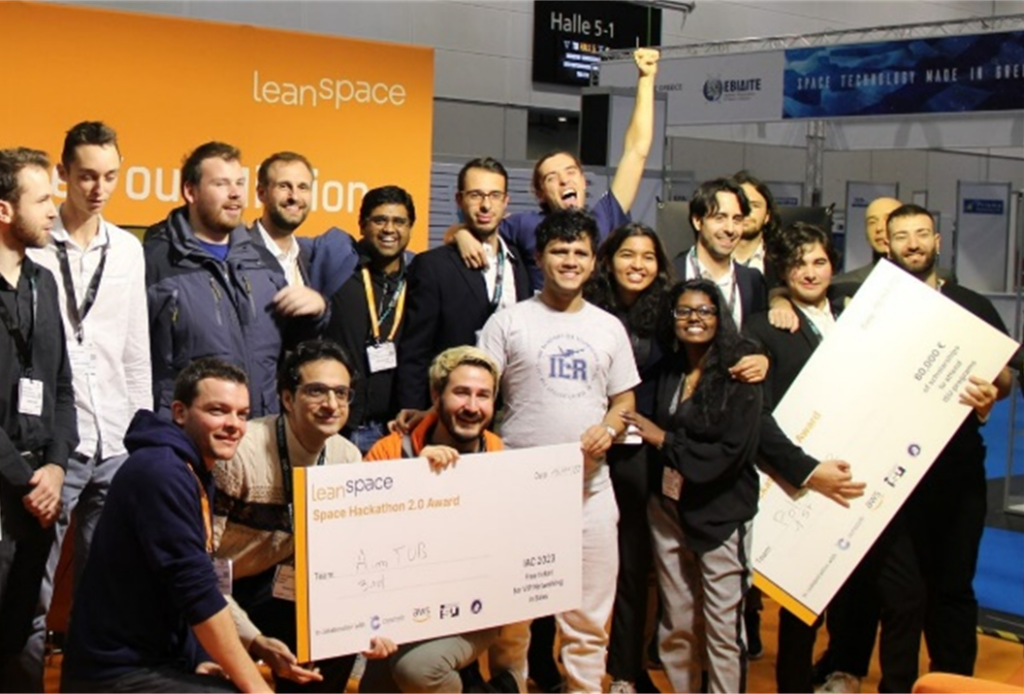
Europe, and particularly Germany, offers a strong support network for start-up funding. TU Berlin’s Center for Entrepreneurship provides consultation and guidance for aspiring founders. TU Berlin graduates from the Department of Aeronautics and Astronautics have successfully launched numerous space companies, forming a key part of Berlin’s thriving space industry.
Conferences and Exhibitions
Space Tech Expo Europe
Once a year, MSE students MSE students attend Space Tech Expo Europe in Bremen, the largest professional space exhibition in Europe. They use this opportunity to connect with representatives from the European space industry and participate in presentations and discussion rounds.
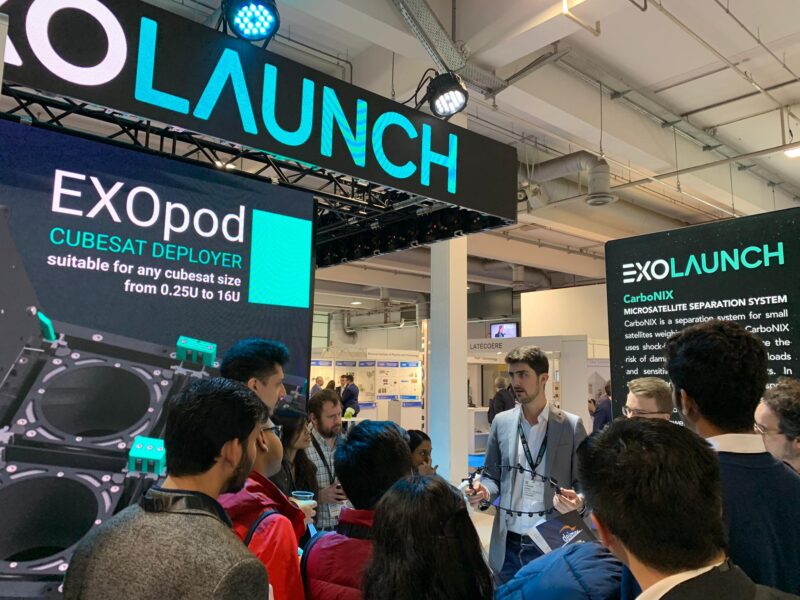
Company Visits
Each year, MSE students visit Airbus or OHB in Bremen and the German Aerospace Center (DLR) in Berlin, gaining insights into Germany’s leading space organizations. Additional visits to regional space companies are occasionally organized.
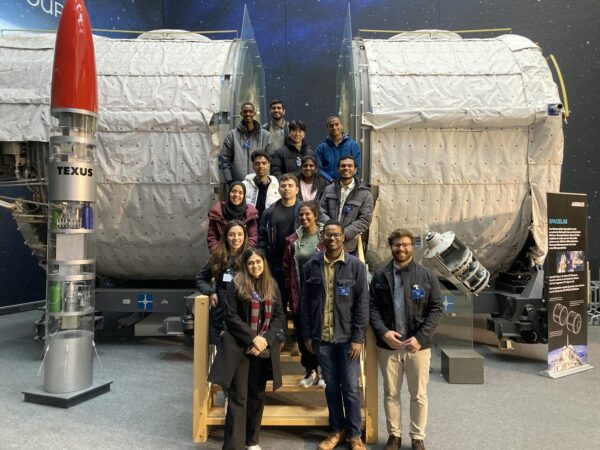
IAA Symposium on Small Satellites for Earth Observation
Held biennially, this symposium unites experts to discuss advancements in small satellite technology for Earth observation. Covering topics like satellite design, data collection, and applications in environmental monitoring and disaster management, it fosters collaboration between industry, academia, and government. The event also explores future trends and innovations. This video captures MSE students’ experience at the conference.



